Where are we based?
Jinrui Qu - Hangzhou, China
Xiaoyang Song - Sydney, Australia
Where are we based?
Jinrui Qu - Hangzhou, China
Xiaoyang Song - Sydney, Australia

China is home to a wild and wonderful array of unique dishes that you simply have to try if you’re an adventurous eater. Here are ten of the most intriguing Chinese delicacies, each with a fascinating backstory, unusual ingredients, and unforgettable flavors. But be warned—these are the top 10 traditional Chinese foods that will truly test your taste buds’ courage!
In this article, you will find these intriguing Chinese delicacies:
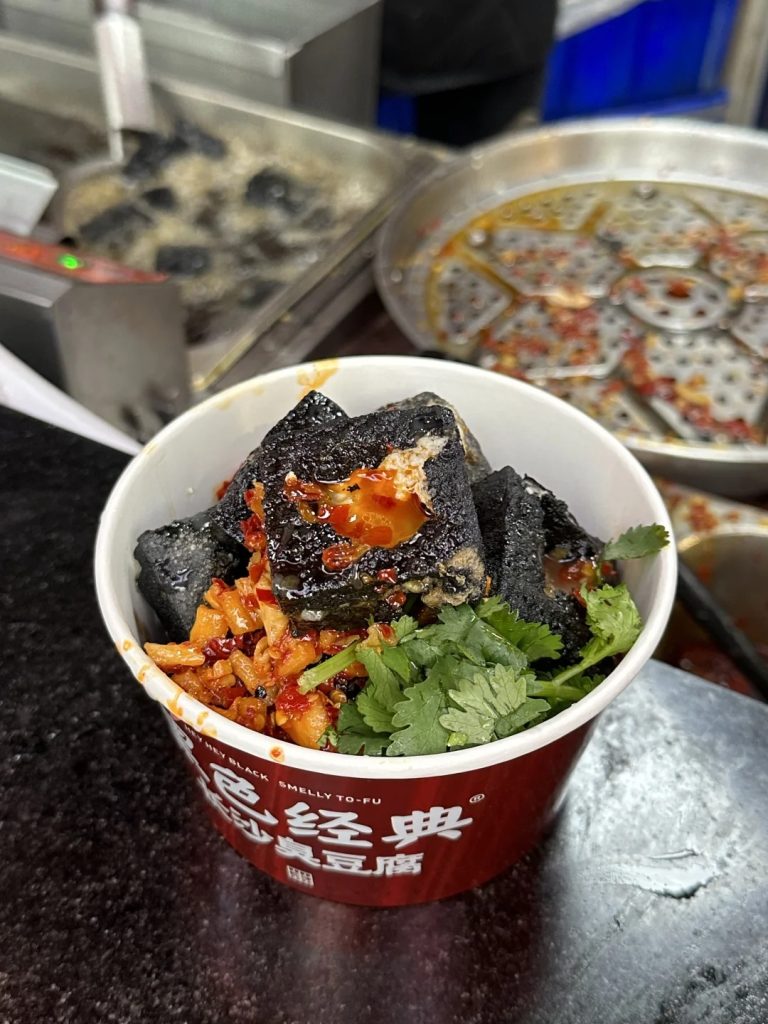
This notorious snack hails from Hunan, Jiangsu, Zhejiang, and Taiwan. Dating back to the Qing Dynasty, it’s made from fermented soybeans, salt, and yeast. Yes, it smells intense, but that’s part of the thrill! The crispy exterior and soft interior create an addictive contrast. The real challenge is to overcome the initial olfactory assault and savor the deep, umami flavors that follow. It’s not spicy, though chili sauce adds an extra kick. If you can get past the smell, the taste is uniquely rewarding. Find it in Changsha, Nanjing, or a night market in Taipei. Just be careful if you have a soy allergy.
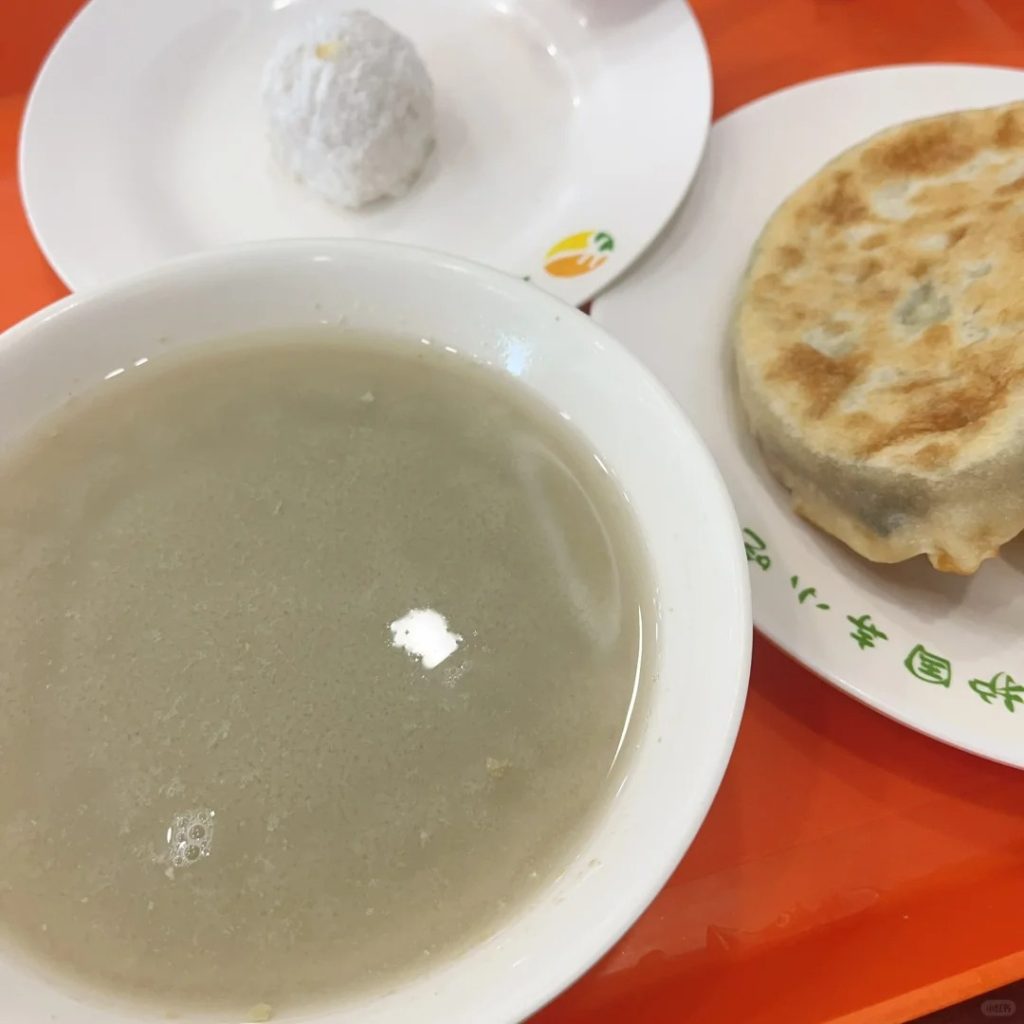
As Chinese celebrity Da Zhangwei once quipped, “The reason Beijing Douzhi hasn’t disappeared from the city is because too many people are curious about how bad it tastes”. This ancient Beijing drink, made from fermented mung beans, is a must-try for those looking to dive deep into local traditions. Its sour, slightly bitter taste is a challenge, but conquering it earns you serious street cred among Beijingers. Imagine sipping a beverage that has been an integral part of Beijing’s culture for centuries. Enjoy it in an old Beijing snack shop, and remember, it’s a non-spicy option but not suitable for those with bean allergies.
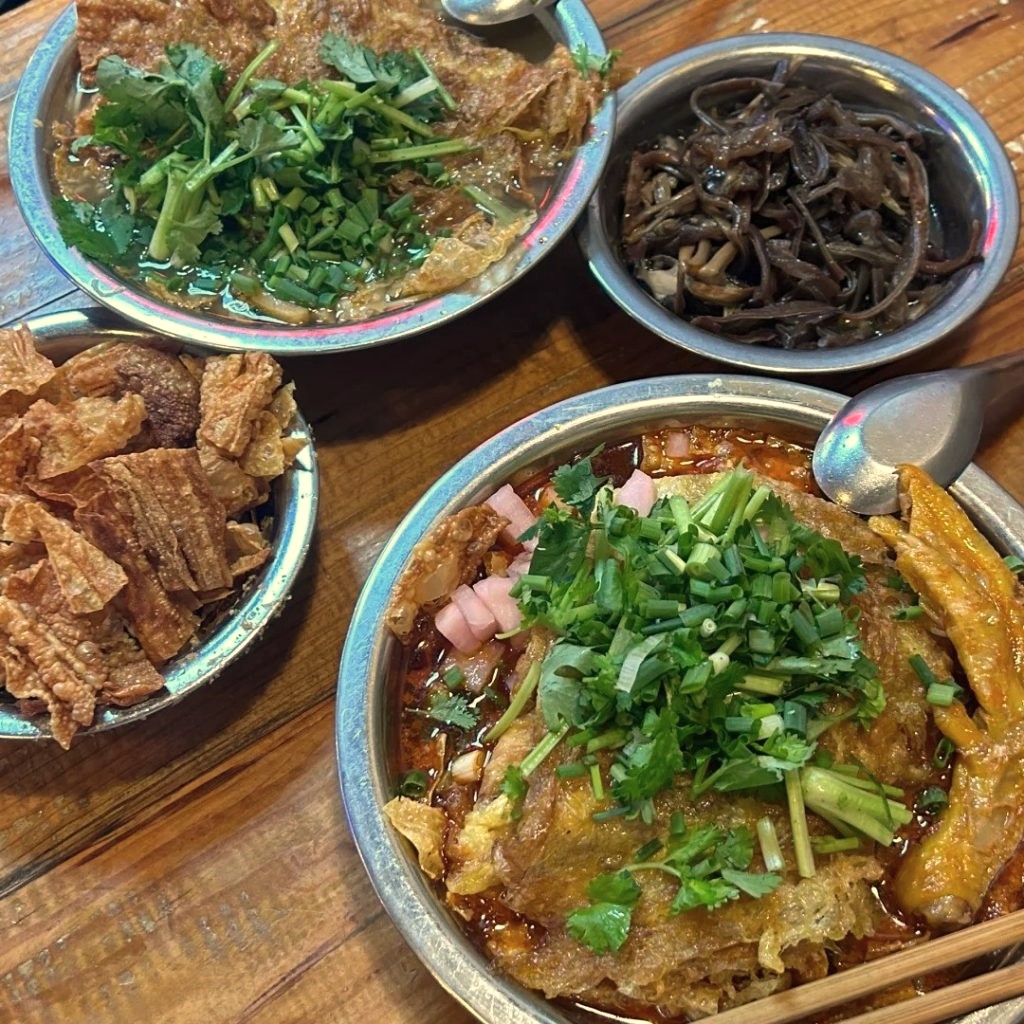
Originating from Liuzhou in the 1970s, this dish is a rollercoaster of flavors with snails, rice noodles, pickled bamboo shoots, tofu skin, and peanuts. Its spicy, sour, and aromatic broth is legendary. If you’re after an intense taste experience, this is it. The pungent smell of pickled bamboo shoots might be a hurdle, but the richly layered flavors make it worth the effort. Dive into a bowl in Liuzhou, but watch out for snails and peanuts if you have allergies.
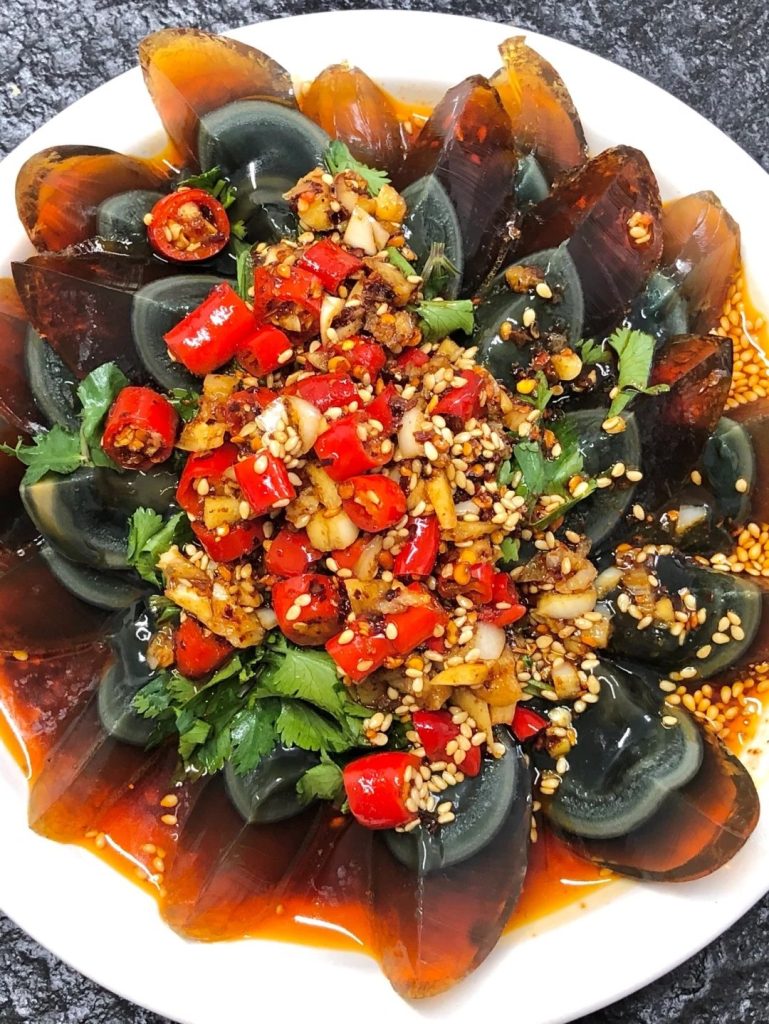
A true conversation starter, this delicacy dates back to the Ming Dynasty. Made by preserving duck eggs in a mix of clay, ash, and alkaline substances, the result is a savory, smooth egg with a look that turns heads. The translucent, jelly-like egg white and dark green yolk are visually stunning and offer a unique taste that is slightly salty with a hint of ammonia. Non-spicy and a true test of your adventurous palate, you can try it in Guangzhou or Changsha. Egg allergy sufferers, take note.
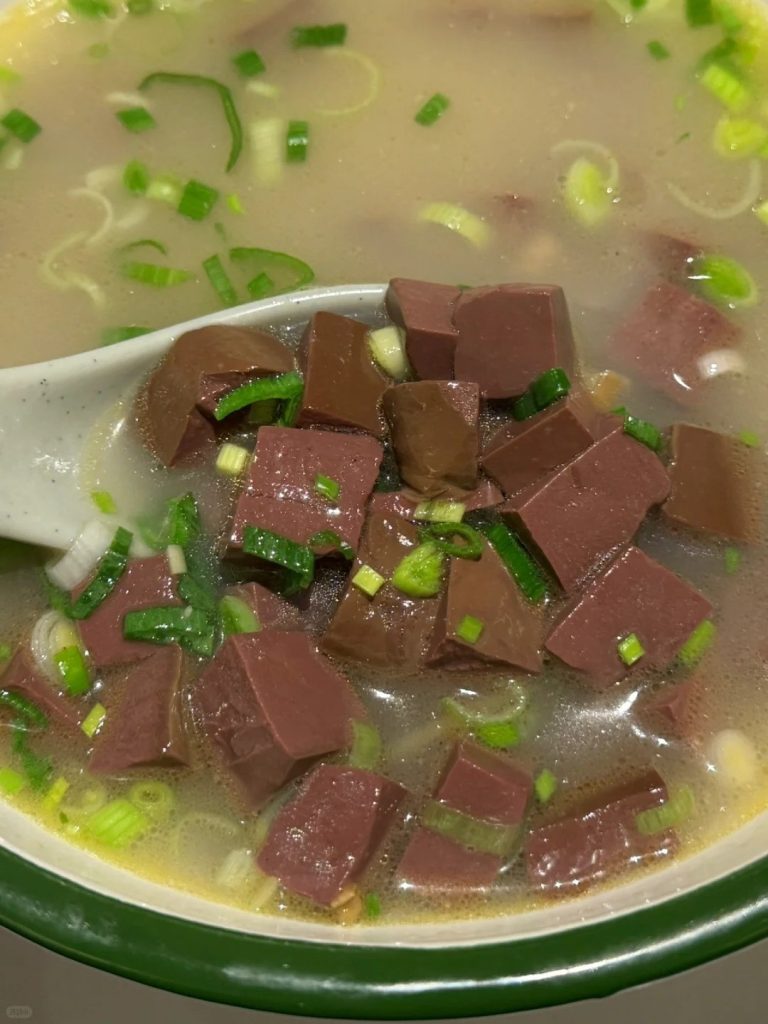
A favourite in Nanjing, this dish features a rich broth with duck blood, vermicelli, duck offal, and tofu puffs. Its silky texture and hearty flavour are a delight, whether you opt for spicy or not. The idea of eating duck blood might seem daunting, but its delicate, tofu-like texture and the comforting warmth of the soup are truly satisfying. This unique soup is best enjoyed in Nanjing, but it’s not for those allergic to blood products.
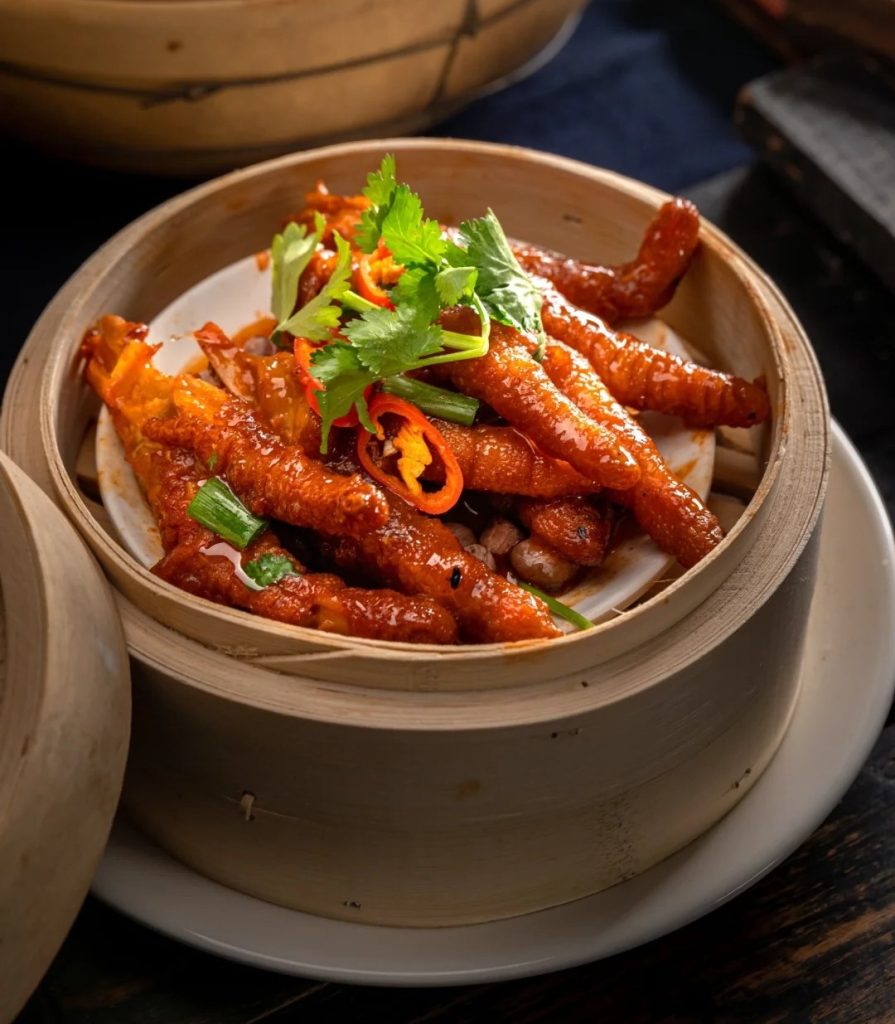
A staple in Cantonese and Sichuanese cuisines, chicken feet, also known as phoenix claws, are marinated in soy sauce and sugar, resulting in a gelatinous, flavorful bite. One of the most famous Cantonese dishes is Steamed Chicken Feet in Black Bean Sauce (豉汁凤爪, Chǐ zhī fèng zhuǎ), which adds another layer of flavor with fermented black beans. It’s an unusual textural treat that you can find in Guangzhou and Chengdu, available in spicy and non-spicy versions. While the appearance might be off-putting, the chewy, flavorful experience is beloved by many. It’s a dish that requires some patience to eat but rewards with rich taste.
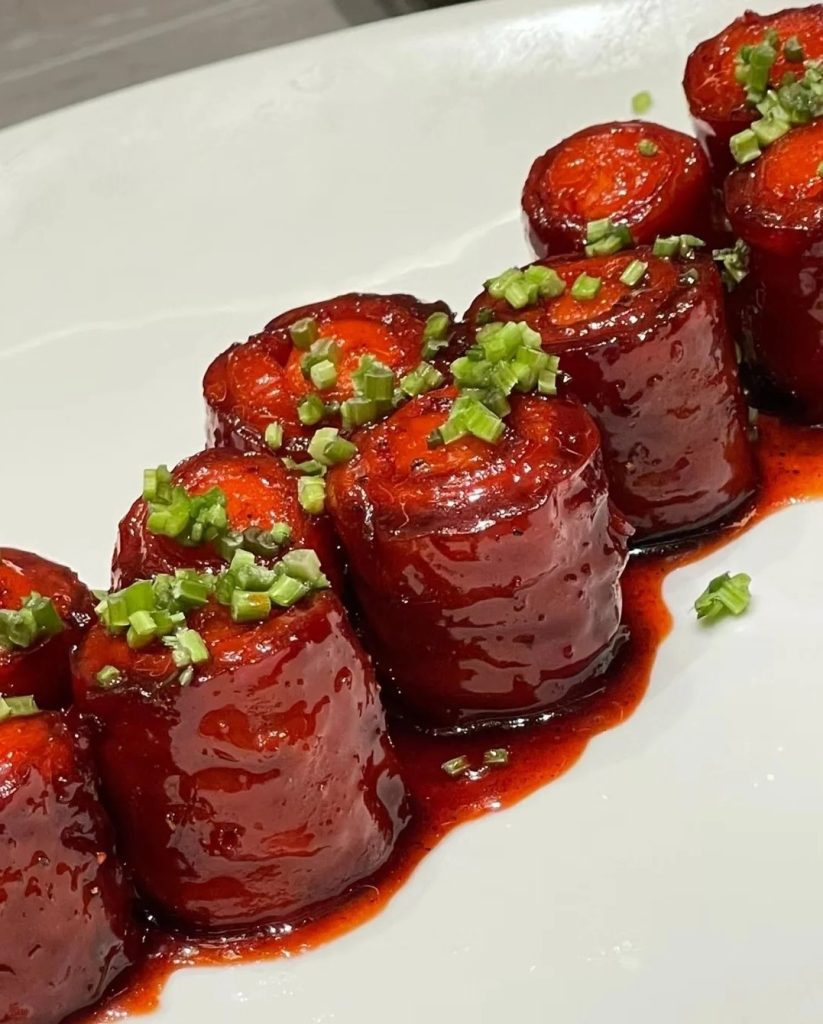
With origins in the Qing Dynasty, this Shandong delicacy is made from pork intestines braised in sugar and soy sauce until perfectly tender. The sweet, rich flavour is unlike anything else, and the method of preparing and cleaning the intestines is a testament to culinary dedication. The dish offers a melt-in-your-mouth experience that’s deeply satisfying. It’s a non-spicy option worth exploring in Jinan.
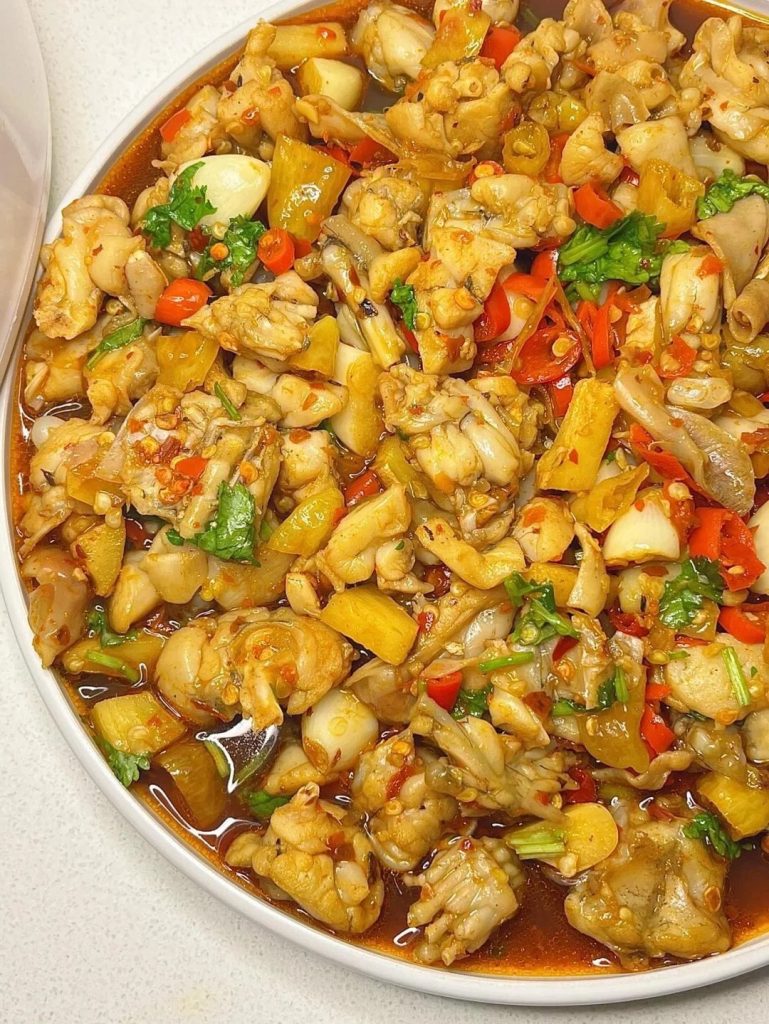
Popular in Sichuan and Cantonese cuisines, bullfrog dishes are all about tender, juicy meat cooked with chili peppers. It’s spicy, succulent, and definitely out of the ordinary. The texture is similar to chicken but much more delicate. Sample it in Chengdu or Guangzhou for a culinary adventure that combines heat with delicate flavours. It’s a bold choice that rewards with a deliciously tender bite.
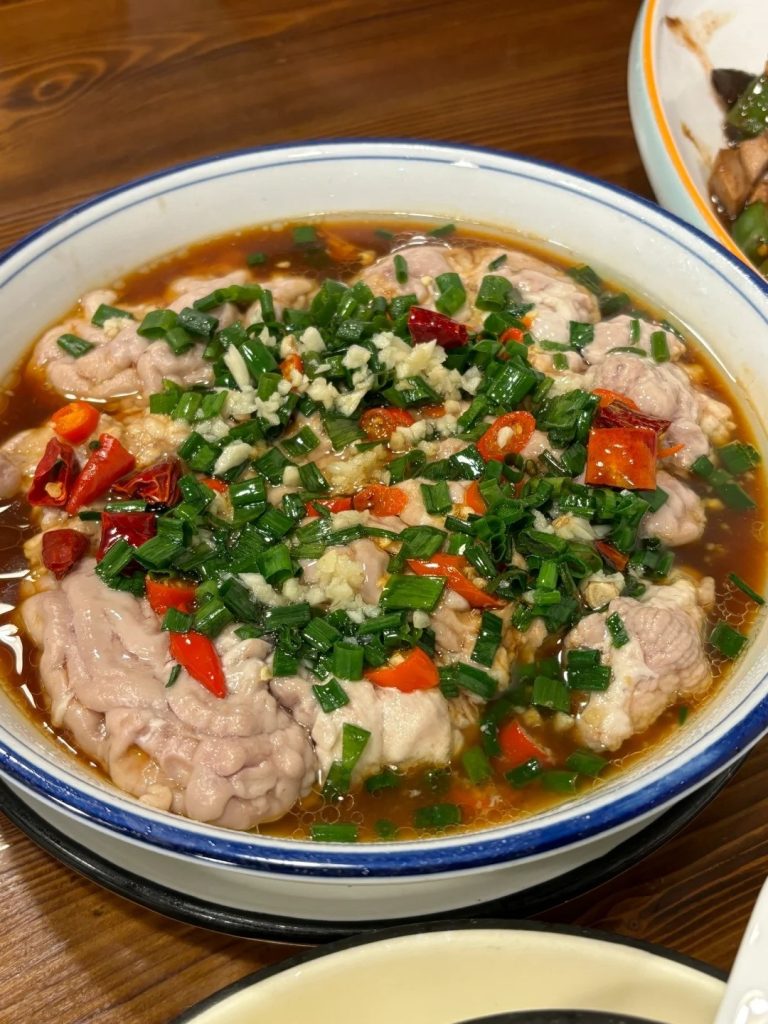
This Sichuan specialty is known for its creamy texture and spicy, numbing flavour from chili peppers and Sichuan peppercorns. Trying pig brain in Chongqing is an adventure in itself, perfect for those seeking a unique, intense taste. The brain’s custard-like texture combined with the powerful flavors makes for an unforgettable experience. However, it’s not for the faint-hearted or those with offal allergies.
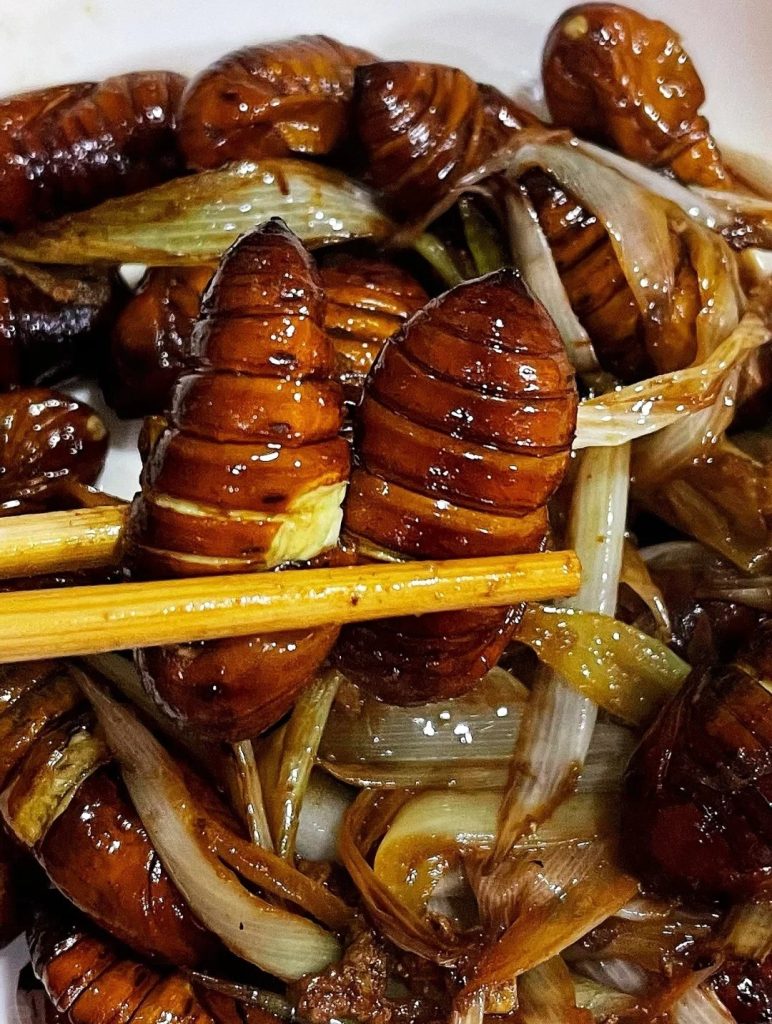
Eaten in regions like Hunan and Northeast China, these high-protein pupae have a unique taste that’s sometimes prepared spicy. If you’re looking to truly push your culinary boundaries, this is the dish to try in Hunan or Harbin. The initial crunch gives way to a rich, earthy flavor. Just be cautious if you have insect allergies.
Each of these dishes offers an exciting peek into China’s diverse culinary landscape. Whether it’s the notorious stinky tofu or the delicate pig brain, these delicacies promise a memorable adventure for any daring foodie. Bon appétit!
For more insights and recipes on Chinese cuisine, I highly recommend checking out The Woks of Life and Red House Spice. These are some of my favorite English resources for authentic Chinese recipes and culinary tips—perfect for exploring the delicious side of Chinese food without the extreme challenges.
Read more: